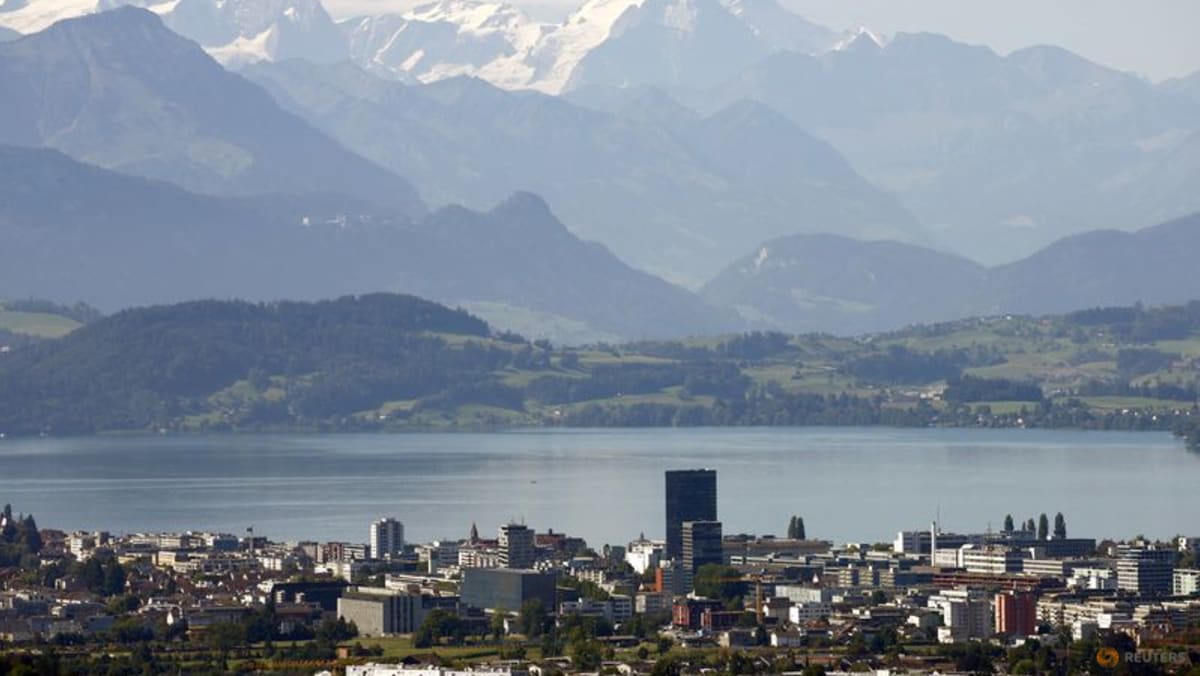Switzerland Elections: Key Takeaways & What Voters Decided - [Latest Updates]
Is Switzerland on the brink of a monumental shift? Recent events, particularly the discussions surrounding referendums and national votes, have fueled speculation, but the reality presents a more nuanced picture.
On Sunday, Swiss voters made a decision that underscored the complexities of their political landscape: they rejected a government-backed plan to expand certain parts of the motorway network. This outcome, while perhaps not surprising to those familiar with Swiss direct democracy, highlighted the ongoing debates within the country regarding infrastructure and development. As Martina Mousson, a political scientist at the GFS.bern, might point out, these types of votes reflect the diverse interests and priorities of the Swiss populace. Furthermore, the four issues put to the vote on November 24th revealed a degree of limited interest among the Swiss population residing abroad. These observations underscore the importance of understanding the local context and the specific dynamics at play.
Adding to the complexity, the Swiss political system allows citizens to directly influence governance through voting, a process known as "votation." The history of voting rights in Switzerland is as intricate as the nation itself, reflecting the evolving nature of citizenship and representation. Polling stations are open on Saturdays and Sunday mornings, though postal voting remains the preferred method for a majority of voters. In contrast, Switzerland has not announced a referendum to dissolve itself as a nation.
- Order Sweet Moment Nyc Delivery Menu Order Online Now
- Jodie Sweetin From Full House To Today Bio Relationships More
On November 24, Switzerland witnessed a day of nationwide votes that touched upon various facets of Swiss life. The citizens were given the opportunity to express their views on everything from motorway expansion to tenancy law reforms.
| Issue | Description | Outcome | Significance |
|---|---|---|---|
| Motorway Expansion | A government-backed plan to expand certain parts of the Swiss motorway network. | Rejected by voters. | Reflects public concerns about infrastructure, development, and environmental impact. |
| Tenancy Law Reforms | Two proposed reforms related to tenancy law. | Specific outcomes not detailed in initial reports. | Concerns people who still own properties. |
This is not the first time the Swiss have weighed in on crucial matters. Referendums are a cornerstone of Swiss democracy. National votes also took place on March 3rd, June 9th, and September 22nd in 2024, along with the November 24th votes. These votes have allowed the Swiss to shape their laws, policies, and future.
The claim circulating on some platforms that "Switzerland has voted to dissolve itself" is categorically false. Such misinformation highlights the importance of verifying information from reliable sources before accepting it as fact. Critical thinking is paramount in navigating the information age.
- Julie Chen Bio Age Family More Everything You Need To Know
- John Legend On The Voice From Blind Auditions To Now
The Federal Statistical Office (FSO) of Switzerland plays a key role in providing objective information. It produces and disseminates statistical data on various aspects of Swiss life, including population, economy, and environment.
Switzerland's commitment to direct democracy is further highlighted by the fact that Swiss citizens make decisions about governance and elect officials through a process called "votation". This system underscores the significance of civic participation and the power of the people. Switzerland's voting history mirrors the complexity of the nation itself.
It is worth mentioning, while the focus is on Switzerland's internal dynamics, that the international context remains important. The countrys neutrality, a long-standing pillar of its foreign policy, is recognized worldwide. Switzerlands relationship with other nations influences its economic and political considerations.
Switzerland is a country known for its commitment to direct democracy, a feature that sets it apart from many other nations. Its multilingualism and federalism have their roots in the past, yet continue to shape the country today.
The Swiss political system includes referendums and initiatives, offering citizens a direct say in decision-making. Historically, Switzerland has faced significant choices, such as whether to join the League of Nations. In 1920, and again in 1986 and 2002, it chose to join the League of Nations (and its successor organizations) through popular vote.
The question of how long it takes to liquidate a company in Switzerland also appears. Company winding up in Switzerland is complex, and the process can take between six and twelve months.
Switzerland's relationship with Libya, including instances of oil supply despite embargoes, points to the country's complex geopolitical strategies.
On the geopolitical stage, certain events might trigger significant consequences. For example, the Sejm (the lower house) with 2/3 votes to dissolve itself, if passed, would mean automatic senate dissolution. While such occurrences are rare in the current political climate, they could affect any president's request for new elections after a sejm fails to provide a vote of confidence to any prime minister candidate.
The expansion of motorways and other significant proposals were decided on by the Swiss Parliament and various interest groups and political parties.
It's critical to analyze any information by consulting reputable sources and applying critical thinking. This is especially crucial in a world where misinformation can spread quickly.
It is important to note that the role of the administrator in Switzerland is critical. The administrator must report on the matter and submit it to the appropriate court in Switzerland.



Detail Author:
- Name : Mrs. Rubie Schulist II
- Username : gziemann
- Email : trever.nienow@gmail.com
- Birthdate : 1992-06-25
- Address : 547 Sasha Estates North Charlotte, MS 56873-6964
- Phone : (862) 589-3192
- Company : Murazik, Breitenberg and Barton
- Job : Rail Car Repairer
- Bio : Possimus cum voluptates libero suscipit. Est aut alias veritatis. Enim ut et molestiae consectetur distinctio.
Socials
instagram:
- url : https://instagram.com/rdare
- username : rdare
- bio : Totam cumque at qui et. Officiis velit qui officiis libero quam facere fuga.
- followers : 4825
- following : 2477
tiktok:
- url : https://tiktok.com/@roderick_dev
- username : roderick_dev
- bio : Enim numquam rerum laborum. Dolore accusantium est voluptas et odio.
- followers : 4520
- following : 455
linkedin:
- url : https://linkedin.com/in/roderick5094
- username : roderick5094
- bio : Et enim doloribus ipsam omnis.
- followers : 3478
- following : 1848
twitter:
- url : https://twitter.com/roderick_dare
- username : roderick_dare
- bio : Tempore nostrum quisquam possimus distinctio omnis dolores. Aspernatur distinctio id in ut. Quia sint similique voluptate.
- followers : 1361
- following : 200